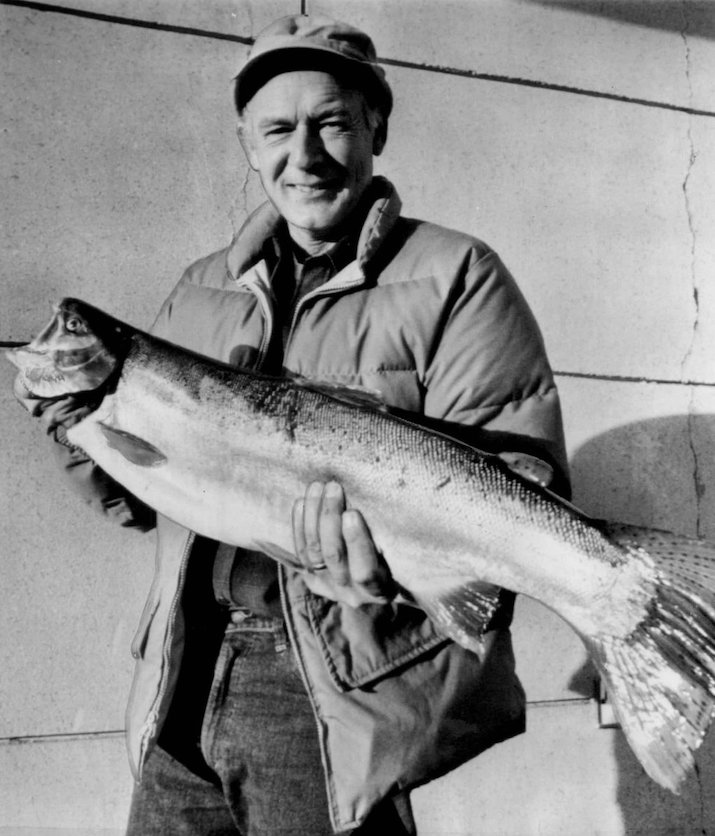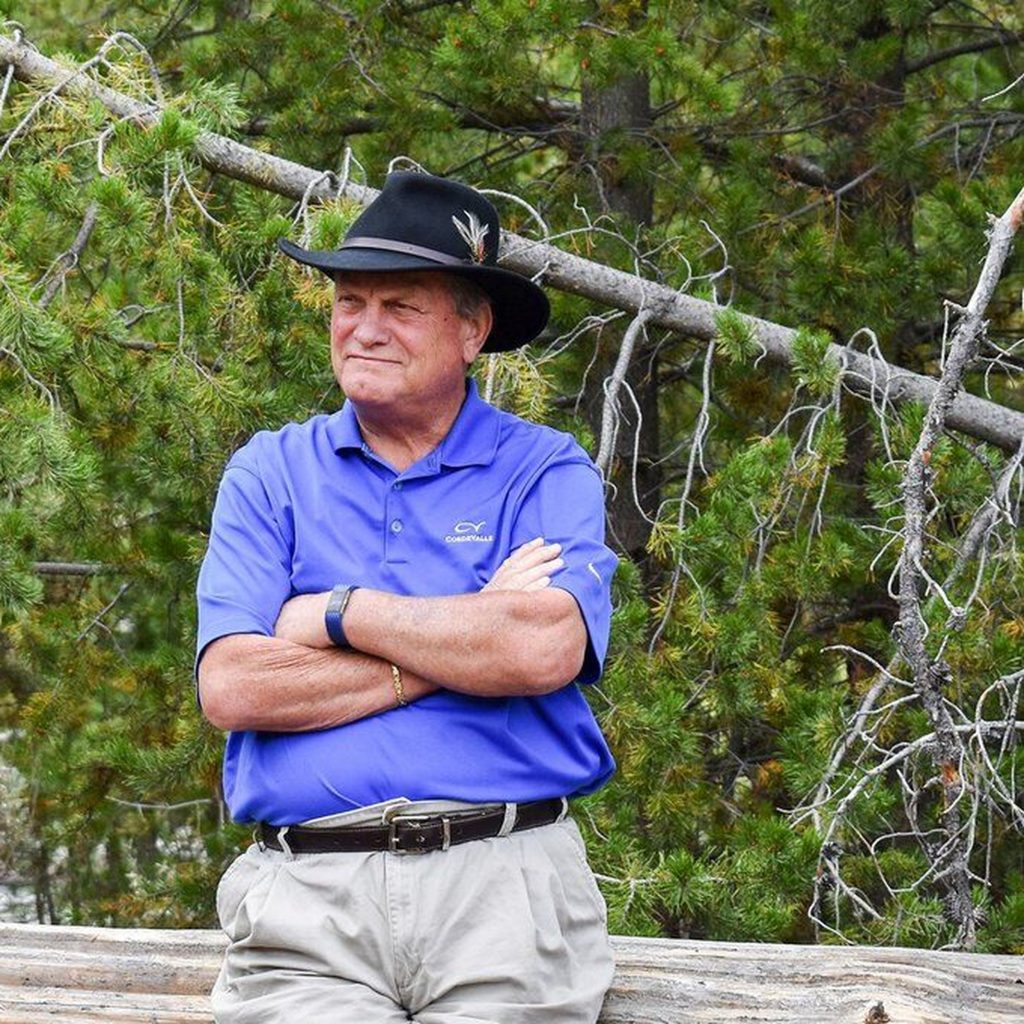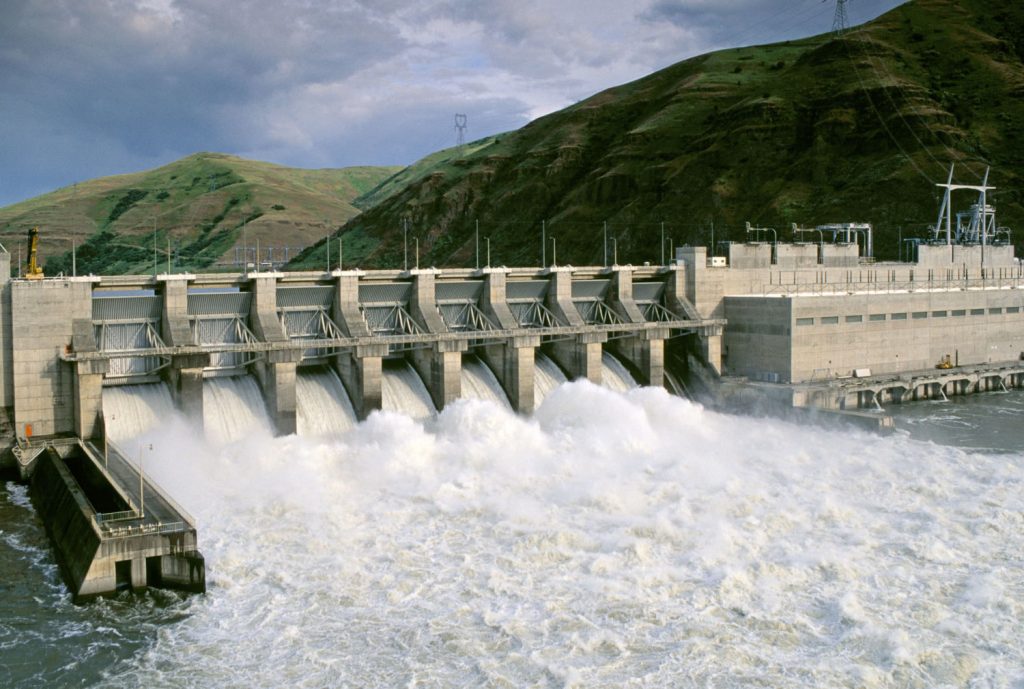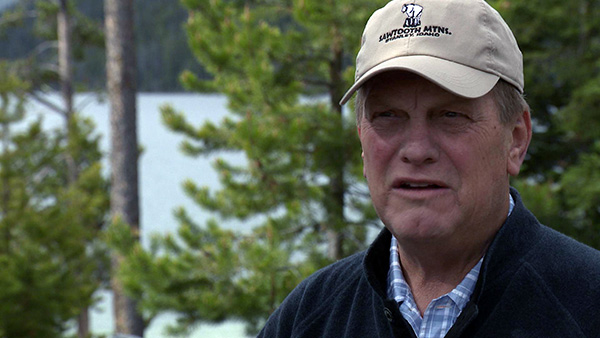Thirty years ago last month then-Idaho Governor Cecil D. Andrus stood at the front of a crowded hotel ballroom in Boise to warn the Northwest’s industrial and energy interests that the Endangered Species Act (ESA) was coming for them, and that the demise of the region’s salmon populations would eventually force them to change.
“We have to tell the Bonneville Power Administration (BPA) and the Corps of Engineers that they’ve had a microchip in their head on how to run the river,” Andrus said at his “Salmon Summit” in 1991. “That should be removed and replaced with a new chip, in which you say, ‘You will maintain this river for the fish, as well as power generation.”’

Later that year, the first endangered species salmon listing was handed down setting off three decades of litigation and involving massive – and largely ineffective – spending on fish and wildlife. And yet the iconic fish struggled on.
Andrus, rarely a pessimist, eventually came to believe the region’s only salmon strategy was simply to stall until the last of the fish were gone leaving nothing left to fight over.
Nevertheless, the region’s Native American tribes and fish advocates fought for salmon, often winning repeat victories in court and slowly bending public opinion against the traditions and influence of BPA, the often-clueless Corps, the inattention of administrations of both parties and deeply invested special interests ranging from irrigators to port commissioners.
Now, in what must be one of the great political ironies of our age, this long, litigious battle over fish, power and river operations finds a most unlikely champion, a former dentist from eastern Idaho, a conservative Republican politician more at home on a golf course than in a drift boat.
This week, Mike Simpson, the one-time Trump loathing congressman from Blackfoot who discovered Trumpian religion just in time to avoid any challenge to his 22-years in the House, rolled out a plan for the region’s grandest social engineering project since Franklin Roosevelt envisioned a Grand Coulee Dam in the 1930’s that would turn the Northwest’s “darkness to dawn.”
And like the very transactional Roosevelt – Montana Senator Burton K. Wheeler said FDR rewarded the region’s senators with a dam in exchange for political support – Simpson’s audacious, $33.5 billion plan is all about the lubricating influence of a billion here and billion there. There is money and projects in his plan to compensate every affected interest when, as Simpson envisions, the four fish killing dams on the lower Snake River in eastern Washington are breeched in the next decade.

Economic development cash and energy research. Waterfront restoration for port towns. More rail options. Money for water quality enhancements. Big checks for irrigators and tourism. And a truly massive enhancement for tribal interests in management of fishery resources.
Pat Ford, who has fought the good fight for Northwest salmon for as long as there has been a fight, told me this week what Simpson “is a true believer in restoring the fish.” And then marveling at the reality, Ford stated the obvious: “The most committed politician in the region to restoring salmon stocks is a conservative Idaho Republican.”
While Simpson richly deserves the accolades he’s received from many quarters – particularly tribes and conservation interests – for reshuffling the cards around fish and power, it’s impossible to escape the sense that the region’s deeply embedded special interests – and their often rabid grassroots supporters – are willingly going to do anything other than what they have been doing since Andrus’s speech, which is nothing to help the fish.
The harsh political reality for salmon and for the Idaho congressman is that this fight, like all our political fights, is less about solving seemingly intractable problems than prevailing over “the other side.” Truth be told those four lower Snake River dams, condemned almost from their inception as expensive dinosaurs that would eventually destroy the fishery, are more important for what they represent than what they offer.

In reality the dams are political symbols, concrete proxies in the continuing western mythology that real men exist to remake rivers, tame Mother Nature and vanquish environmentalists. After spending years insisting dammed rivers can co-exist with migrating fish why admit it was always a lie?
Even as Simpson’s plan offers the promise of billions in goodies and the end of endless litigation, the grassroots forces who have defended the dams with religious vigor, while hating those who advocate for the fish, will find a “come, let us reason together” argument no more attractive than brackish slack water.
Eastern Washington congresswoman Cathy McMorris Rogers is the epitome of how this mythology works. She immediately blasted fellow Republican Simpson’s plan with a line that had the precision of a fearful focus group. “These dams are the beating heart of Eastern Washington,” McMorris Rogers said, knowing just how to connect the culture of concrete with the grievance of 21st Century conservative politics.
Will southeastern Washington Republican Jamie Herrera Beutler, one of the few House members to buck her party on impeachment and under fire for it, really pick another fight with her conservative base by getting on board with Simpson? What prevents the calculating, do nothing Jim Risch, who has done it before, from kneecap Simpson’s plans by quietly stoking the ready opposition?
Simpson’s calculation is that he has, at best, a two-year window of opportunity to sell his idea.
With Joe Biden in the White House wanting a historic infrastructure bill, and with Oregon Senator Ron Wyden sitting atop the Finance Committee, Simpson might – might – have an opening. Don’t count on it. When Wyden outlined his own priorities recently salmon wasn’t on the list.
If American politics were more like 1980 when Henry Jackson and Frank Church and Mark Hatfield attempted the region’s last grand design to head off the end of salmon – the Northwest Power Act – Simpson’s billions of dollars in carrots without a stick might have a chance, and the fish might have a future. But today there is no Scoop Jackson, and no Mark Hatfield and region’s once proud bipartisan altruism is long out of fashion.
The Idaho congressman has taken this intriguing kickoff to his own 20-yard line. He’ll need the kind of regional offense not seen in decades to cover the next 80 yards to the end zone. The clock is running, and it benefits the same old group that wants to do nothing.
—–0—–
Additional Reading:
A few suggestions for additional reading this weekend…
The Secret History of the Shadow Campaign That Saved the 2020 Election
Time magazine journalist Molly Ball with a sobering look at just how close the United States came to failing at democracy.
“This is the inside story of the conspiracy to save the 2020 election, based on access to the group’s inner workings, never-before-seen documents and interviews with dozens of those involved from across the political spectrum. It is the story of an unprecedented, creative and determined campaign whose success also reveals how close the nation came to disaster. ‘Every attempt to interfere with the proper outcome of the election was defeated,’ says Ian Bassin, co-founder of Protect Democracy, a nonpartisan rule-of-law advocacy group. ‘But it’s massively important for the country to understand that it didn’t happen accidentally. The system didn’t work magically. Democracy is not self-executing.’”
Sobering. Hope you’re paying attention. Link to the full article.
I Talked to the Cassandra of the Internet Age
A fascinating New York Times piece by Charlie Warzel about the scientist who predicted what the Internet would do to society and to each of us.

“The big tech platform debates about online censorship and content moderation? Those are ultimately debates about amplification and attention. Same with the crisis of disinformation. It’s impossible to understand the rise of Donald Trump and the MAGA wing of the far right or, really, modern American politics without understanding attention hijacking and how it is used to wield power. Even the recent GameStop stock rally and the Reddit social media fallout share this theme, illustrating a universal truth about the attention economy: Those who can collectively commandeer enough attention can accumulate a staggering amount of power quickly. And it’s never been easier to do than it is right now.”
Fascinating. And frightening. Read the whole thing.
The Lousy Tippers of the Trump Administration
The writer, a restaurant worker in D.C., dishes on the habits of the former administration.
“The restaurant adapted to the Trump era. We introduced a $45 three-course early bird special, which I recall was still too pricey for Wilbur Ross, though the unusual influx of right-wing tourists who visited appreciated it. Betsy DeVos became a regular, and unlike the others she was a paragon of superficial graciousness, even if she didn’t tip quite enough to compensate for two or three tables that would ask to move if she was seated near them.”
Moe Tkacik writes of the Trumpers, “they were exhausting, impossible, stingy, and cruel, just like at their day jobs.”
Bathroom Reading
And this delightful essay from Rose Henrie about, well, “talking to a man about a horse.”
“It is remarkable to think that each of us spends roughly three years of our life going to the toilet. And that’s not to mention the reading, watching, and maybe for some — though it’s still an etiquette grey area — talking on the phone. Potty training is a child’s first step to becoming a functioning member of society. Along with learning to communicate, this is phase one of proto-personhood: say please and thank you, and try not to wee on the floor. For those of us who are fortunate, this is the start of a lifelong lack of thinking about using the loo. It is something we take for granted. An accessible, clean space is often available, whether it’s in the home or out and about. When nature calls, we know exactly how to answer and can do so, for the most part, comfortably.”
You can read it while doing “your business.”
Thanks for reading. Be careful out there.


